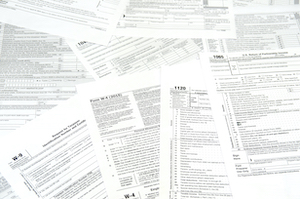New requirements included in SECURE 2.0 legislation to simplify and consolidate reporting and disclosure forms have been submitted to the Office of Management and Budget (OMB).
The items identified as RIN: 1210-AC23 appear on the regulatory dashboard at Reginfo.gov; however, they have not been added to the agency’s unified agenda.
The listing notes described them as in the “pre-rule” stage, where the agency (in this case, the Department of Labor) generally collects information to form the basis of a rule, including a possible request for information (RFI), with a list of questions for stakeholders, before issuing proposed guidance.
Like 408(b)(2) requirements imposed a decade ago to assist plan fiduciaries in assessing and comparing the reasonableness of fees, the provisions in SECURE 2.0 are part of a larger effort to simplify what critics say are complex, inconsistent, and jargon-heavy reporting and disclosure forms.
In early June, the Senate Committee on Health, Education, Labor, and Pensions (HELP) sent a letter to the DOL urging it to implement “effectively and expeditiously” SECURE 2.0. It also urged the agency to prioritize six provisions related to the committee’s mission, one of which, Section 341, directs the Treasury Department and DOL to “amend regulations to permit a plan to consolidate certain required notices into a single notice.”
More specifically, according to an internal tracking document compiled by the American Retirement Association’s Government Affairs Committee, the rules would do the following:
Consolidation of Notices: Within two years, regs to permit consolidation of two or more of the notices required under sections 404(c)(5)(B) and 514(e)(3).
Eliminate plan requirements for unenrolled participants: Allows plans to provide much more limited information to employees who are not contributing to a plan and have no balance in the plan. Must have provided an SPD, any required eligibility notices, and an annual notice.
Fee disclosure improvements: Review and report on improving fee disclosures in three years.
Paper statement mandate: Requires at least one quarterly benefit statement to be delivered on paper unless the participant opts out of the paper requirement. The paper disclosure requirement is once every three years for defined benefit plans. No paper would be required for wired-at-work or those who opt out of paper.
Report on improvements to reporting and disclosure: Requires the Departments of Treasury and Labor and the Pension Benefit Guaranty Corporation (PBGC) to report back to Congress with recommendations to consolidate, simplify, standardize, and improve the reporting and disclosure requirements for employer-sponsored plans.
Report on Rollover Notices: Requires GAO to issue a report to four committees on the effectiveness of section 402(f) notices with recommendations.
Ted Godbout contributed to this report.
- Log in to post comments
